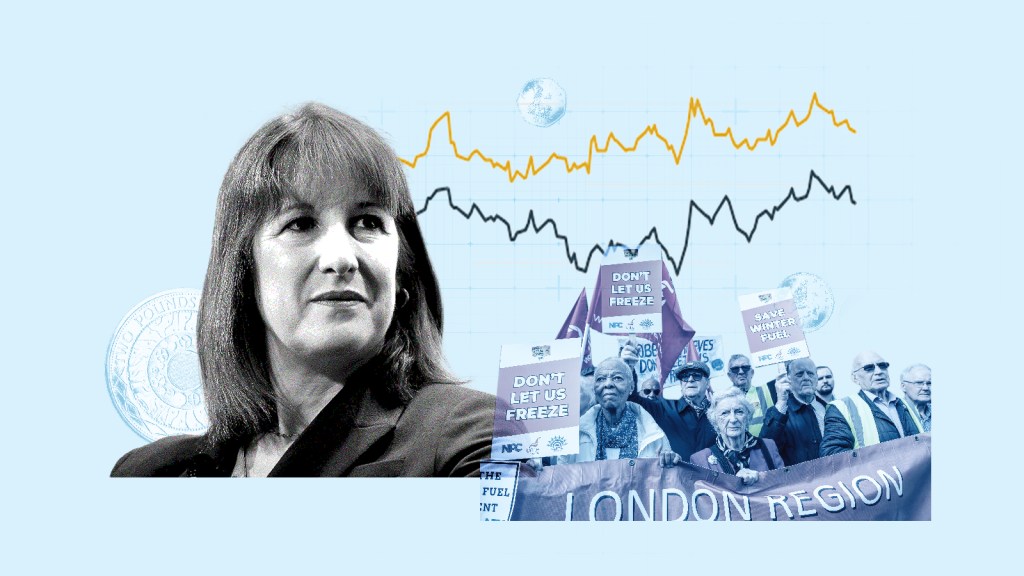Rachel Reeves’ Upcoming Spending Review Faces Critical Market Scrutiny
Next week, Rachel Reeves will present the UK’s first spending review since 2021, amidst significant pressures from her ministers to widen departmental budgets and from Labour backbenchers advocating for welfare promises like winter fuel payments. Despite these political demands, the primary audience for the Chancellor will be the bond markets, a critical yet often overlooked constituency in fiscal discussions.
Since Kwasi Kwarteng’s tumultuous mini-budget in September 2022, which sent shockwaves through the gilt market, the perception of financial markets has created limitations for successive chancellors. The drastic tax cuts and increased spending announced in that mini-budget triggered emergency interventions by the Bank of England to prevent widespread financial turmoil. Sanjay Raja, UK economist at Deutsche Bank, notes that the repercussions of that budget still linger over current market conditions.
Typically, a government spending review wouldn’t be a major concern for bond investors. Reeves is expected to maintain established spending plans without major shifts to tax policy when she presents how the government intends to allocate a 1.3% annual increase in departmental spending and over 2% rise in capital spending for the upcoming years. However, history shows that chancellors often increase their spending plans, with an average rise of 1.1% announced during these reviews, according to Capital Economics.
Amid rising government borrowing costs and high interest rates, market participants will closely monitor any signs of fiscal looseness. This environment, coupled with a global economic rebound that has faced setbacks, highlights the precarious position of the UK’s fiscal framework.
In her medium-term strategy, Reeves will shape her growth targets based on the allocation of £113 billion in investment borrowing freed in her initial budget. The Resolution Foundation estimates Labour will spend around £400 billion more than the Conservative party during this parliament, amounting to just under 10% of GDP.
Two major international forecasting organizations have cautioned Reeves that without corrective measures, such as tax increases or spending cuts later this year, she is likely to breach her fiscal rules.
The Organisation for Economic Cooperation and Development (OECD) highlighted that just £9.9 billion in fiscal buffer is highly susceptible to further growth disappointments or increases in bond yields.
The International Monetary Fund (IMF) has urged Reeves to adhere to her fiscal discipline, advising against the continuous pressure for policy adaptations from financial markets and media. Luc Eyraud, the IMF’s mission chief in the UK, indicated ongoing market demands for regular policy adjustments outside of formal fiscal events.
Investors in bonds are preparing for potential tax increases in the autumn budget, responding to speculation about Labour’s revenue-raising strategies. Andrew Hunter from Moody’s Analytics remarked that the likelihood of further tax increases at the next budget meeting appears almost certain given the government’s trend towards breaking its fiscal commitments.
Since the spring statement, bond yields have posed challenges for the Chancellor. The UK has not captured as much “haven” investment, with underwhelming flows into gilts post-US tariffs affecting the dollar’s strength. Long-term gilt yields remain higher than those in the US, hitting a 27-year peak recently as foreign investment in UK debt decreased substantially, according to Bank of England data.
Rising yields, indicative of declining bond prices, are instrumental in shaping the government’s fiscal position. A recent climb in borrowing costs has eroded £5 billion from the Chancellor’s £9.9 billion fiscal buffer, per Oxford Economics.
Analysts from Deutsche Bank suggest that gilt trading levels are at an unusually high premium relative to other markets, with the mini-budget marking a significant shift in UK debt’s appeal. The turbulence following that decision has altered the long-held perception of UK bonds being ‘rich’ compared to forecasts.
Bond yields have been further influenced by US market movements and the UK’s tighter monetary policy, where Bank of England interest cuts have not aligned with initial market expectations. Analysts from Phoenix Group view limited fiscal headroom as a vulnerability unlikely to be resolved due to political dynamics.
The Chancellor will aim for minimal disruption in bond markets following her spending review. Recent positive economic news, including an early-year GDP outperformance of 0.7% and partial trade agreements with the US, India, and the EU, may bolster her position.
A significant focus will be on dispelling the notion that Labour is reinstating austerity measures, especially with plans to inject £550 billion into capital spending over the next four years, targeting growth-oriented sectors like research and defense.
However, substantial investment means increased scrutiny. Economists forecast that defense spending will not yield immediate economic growth benefits, suggesting that the gains from investment could manifest over the long term. The Chancellor hopes that the promise of enhanced future growth and sound public finances will mitigate the concerns of bond investors.
Expert Recommendations for Investment Focus
As Rachel Reeves prepares to allocate over £100 billion in capital spending during next week’s review, experts are urging an increase in investment across Britain’s railways, social housing, and energy infrastructure to stimulate economic growth. Think tanks emphasize this moment as an opportunity for revitalizing UK living standards and productivity through increased public investment.
Adrian Pabst from the National Institute of Economic and Social Research advocates for enhanced transport connectivity, particularly in northern regions, citing the necessity for investments in systems like trams in Leeds and faster rail links.
Pranesh Narayanan from the Institute for Public Policy Research echoed these sentiments, emphasizing the importance of social housing investments as a countercyclical strategy to fortify the UK construction industry.
James Smith from the Resolution Foundation highlights that vital economic infrastructure investments, including upgrades to the energy grid and transportation networks, are essential for fostering the growth the government urgently seeks.
Moreover, Andrew Carter from the Centre for Cities points out the need for targeted public investments in towns facing economic distress, advocating for developments that can kick-start urban regeneration.
Since the 2008 financial crisis, the UK has struggled with stagnant productivity and wage growth, partly attributed to weak investments that sharply declined following the 2016 Brexit referendum. Over the past 30 years, the UK has often ranked last in G7 countries for gross fixed capital formation.
A report by the Office for Budget Responsibility last year suggested that consistent government investment at 1% of GDP could ultimately expand the UK economy’s productive capacity by 2.5% over 50 years.
During the upcoming spending review on Wednesday, Reeves will detail the distribution of the over £100 billion in capital spending announced in her October budget, as well as departmental funding for the next three years.
Recently, Reeves disclosed a £15.6 billion investment plan for regional transport, including tram network renewals in South Yorkshire and extensions for the Newcastle-to-Sunderland Metro.
Reeves has tasked officials with reviewing the Treasury’s project evaluation guidelines to favor investments in areas outside of London, particularly those with lower productivity.
Despite potentially limited fiscal space due to her £9.9 billion cushion, the government has partially reversed its stance on universal winter fuel payments, with Sir Keir Starmer proposing the elimination of the two-child benefit cap, which may necessitate future spending cuts or tax increases to comply with fiscal rules.
A Treasury spokesman reiterated the government’s commitment to overhauling planning processes to facilitate the construction of 1.5 million homes, invest in sustainable energy projects, and further enhance local transport.
Looking ahead, the spending review aims to advance economic growth through comprehensive investments across all regions of the country.




Post Comment